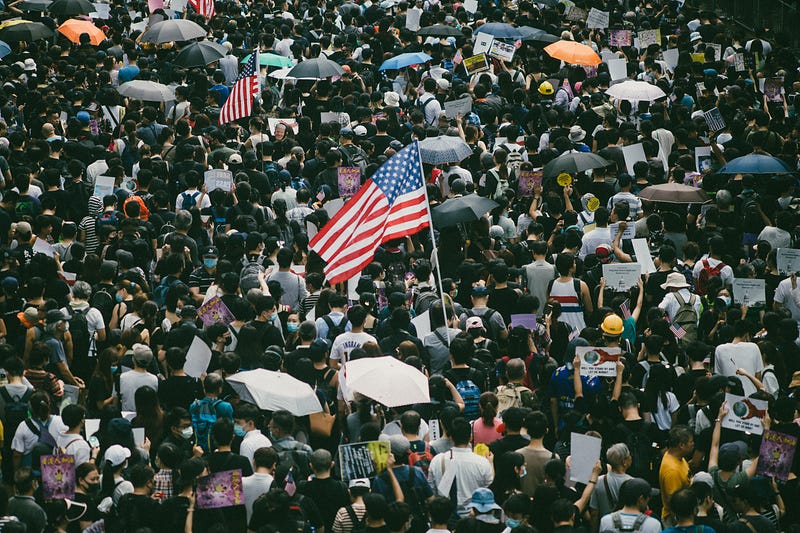A Discussion of “Shrinking Capitalism”
In the May 2020 American Economic Association’s (AEA) Paper and Proceedings, Samuel Bowles and Wendy Carlin put forth a bold proposition for a new paradigm to supplant the previous reign of Neoliberalism.
A provocative goal paired with an equally provocative title, “Shrinking Capitalism”. While it could be read that capitalism should be shrinking, an idea I do not agree with as one who was trained in the market-loving paradigm of Neoliberalism, they do have a point that the sphere of our economy that is truly capitalistic has shrunk.
They say “a defining feature of capitalism is that work using privately owned capital goods is performed under the control of an owner or manager in return for wages, producing goods to be sold for profit” (p. 372). However, much of what is produced today is not a product but an idea or service, not to mention the large public sector (government) as well as the volunteer work that fall outside this definition. In that sense, the sector that is truly capitalistic is shrinking.
Much of the paper necessarily details the earlier paradigms of the field of economics by explaining the prominent values of that time. From the values comes the dominating economic models that explore and support them, accepting certain assumptions of how the world “should” be. The models result in policies that shape the world according to the ruling paradigm. Each paradigm is briefly described below.
- Classical liberalism, the original paradigm — values included order, autonomy and liberty. Models based on competitive markets and comparative advantage, all resulting in the policies of free trade and anti-monopoly.
- Keynesian social democracy — values included security and fairness. Models based on the aggregate macro economy resulting in policies calling for the government managing the economy.
- Neoliberalism — values based on negative liberty and freedom from interference by others. Models based on self-interested agents and competitive markets, resulting in policies that minimize government involvement and rely more on market outcomes.
Why has there been a succession of paradigms? They say for a paradigm to be successful requires
- economic models that work synergistically with the value system; and,
- the economic models must be “a good enough approximation” of the economy at that time.
If there is a big shock to the economy, that second requirement can fail.
Thus, Classical Liberalism lost its grip in the face of the Great Depression which challenged the expectations the economy would right itself. Likewise, Keynesianism’s belief that the economy could be managed through the business cycles fell in the face of stagflation, a combination of a recession with inflation. Monetary and fiscal policies can handle a drop in Aggregate Demand essentially by replacing and/or stimulating consumption. However, those same policies make the inflation of stagflation worse.
Similarly, they now argue Neoliberalism has been challenged by the global financial crisis 10 years ago because it revealed that markets did not regulate themselves successfully.
The premise of their article of shifting paradigms is no doubt true. Economics did begin with what came to be called Classical Liberalism with the writings of Adam Smith, David Ricardo and others.
The Great Depression is widely considered the challenge that led to the rise of Keynesian thinking and policy making that dominated after the Great Depression. And it is generally recognized that after the stagflation of the 1970s, the 1980s saw the return to a belief in markets like the days of classical liberalism but with some modifications because of what we had learned in the years since— thus, Neoliberalism.
So then there are 2 questions that this article is essentially asking.
- Are we seeing a shift?
- If there is a shift, is it to the paradigm they describe that recognizes the role of social norms?
The first question can only be answered in hindsight, which is fitting because economics does its best work looking back as opposed to predicting the future. However, I would concede it is possible we are going through a shift. Certainly, the belief in deregulation as the way to prosperity has been injured by the 2008 financial crisis.
While you could argue that they did the deregulation wrong and there is nothing inherently problematic with Neoliberalism, a similar argument could have been made when Classical Liberalism fell to Keynesianism.
At that time the prolonged Great Depression was held up as proof that the economy could not right itself as Classical Liberalism claimed it would. With hindsight, we can see many government interventions that likely caused the recessions to persist. But at the time, the argument against Classical Liberalism won out. Likewise, maybe Neoliberalism is wrong or maybe it is just losing the fight.
With the second question, the authors are predicting we are all seeing a need to change to models that reflect a wider dimension with room for social norms because the financial crisis has opened our eyes to this omission. Neoliberalism is essentially value neutral assuming agents interacted in markets or created complete contracts to manage relationships. Instead, this new paradigm as described by the authors acknowledges a role for “power and social norms” because much of economic activity cannot be managed with complete contracts.
For example, an employer and employee do in a sense strike a bargain where the employer pays the employee for certain services. However, as our economy has moved from more easily measurable physical output to more intangible knowledge or service products, the ability for the employer to be sure he is getting what he paid for is reduced. Thus, social norms like work ethic, integrity, and reciprocity are essential to the employer-employee relationship. The authors are arguing then that this implicit assumption needs to be made explicit in the models of the new paradigm.
Therefore, the authors conclude the current paradigm needs to shift to allow new models to include the values of social relations, community and sustainability. The New Paradigm (name TBD) is bringing in a third dimension. When you look at the shift from one paradigm to the next up until now, in one sense you can say the disagreements have been about how much we should rely on the markets or how much we need government intervention to correct the markets.
Simply put, as they describe each paradigm we see the history of economic thought as one that has gone back and forth from market centered to state centered and back to market centered. In the end, the authors are asserting this debate and shift between markets ruling or the government ruling is ignoring a necessary third player, the civil society. They see a need for a new paradigm to dominate economics to prevent “social alienation” and “authoritarian movements” (p. 372).
The main goal with this paper is to call for the end of Neoliberalism and its focus on markets because we need to bring in this new dimension, not just shift back to a state centered paradigm.
While it is too soon to see if they are right that this is the new paradigm coming along, I do agree with their conclusion that economics for too long has been an argument about how much government intervention there should be versus how much market reliance. We have focused on this two dimensional fight which has ignored some of the issues raised in behavioral economics and other fields like management, sociology and psychology. The paradigm they are suggesting could give us an “expanded space” to analyze our economy.
In their conclusion they call for economists to rise to the challenge of
…imagining and explaining how the pursuit of a broader concept of freedom and the cultivation of the associated norms of solidarity, fairness, reciprocity, and sustainability would enhance the functioning of a successful modern economy. (p. 377)
Whether we are in fact moving to a new paradigm or if work in these areas broadens our application of the Neoliberalism paradigm, I do think this shows where the field is heading. That is, I think the cutting edge of a field is often found where it butts up against another. To the extent issues and models that cross between economics and psychology, or sociology, or management are addressing issues and providing understanding better than Neoliberal models have, then yes, a new paradigm could take hold.
Anecdotal with an n=1, but I found it interesting that they bring in the idea of market, government and civil society because this past year I started teaching my graduate global economy class with just that sort of model, using a book by economist Barry Clark, The Evolution of Economic Systems. Clark takes a holistic approach by not just focusing on a study of the markets and their functioning in the global economy. Instead he focuses on economic systems which has three components: the economy, the state, and the civil society. Capitalism is a market centered economic system, but it still has the state and civil society. Likewise, communism is a state centered system, but it still has markets and civil society.
Rather than focusing on the more technical and Neoliberal aspects of markets, I liked this book for my MBA audience because I thought it gave a richer discussion of why countries have the economic system they have now as well as how it came to be by looking at their economic history. Perhaps I am feeling the shift to a new paradigm? I think I will go with that because it makes me feel like a trendsetter, or at least an early adopter.
Reference: Bowles, Samuel, and Wendy Carlin. 2020, “Shrinking Capitalism.” AEA Papers and Proceedings, 110:372–77.
By Ellen Clardy, PhD on .
Exported from Medium on January 10, 2023.




